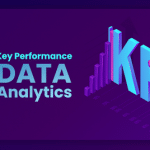Today’s world, it’s hard to imagine without artificial intelligence. The company https://tovie.ai/, helps the financial sector to optimize its costs, to improve the collection of receivables.
Voice assistants and chatbots based on artificial intelligence, are the coming future, without which it will be very difficult for businesses to compete in the marketplace.
What is artificial intelligence?
Artificial intelligence (AI) is a field of computer science that deals with the design and development of computer systems that can perform tasks that normally require human thinking and intelligence. Artificial intelligence aims to create intelligent machines that can solve problems, learn, process natural language, and make decisions.
Nowadays, artificial intelligence has many applications in various fields, such as industry, medicine, finance, education, and many others. Examples of AI applications include recommendation systems, chatbots, speech and image recognition, autonomous vehicles, or data analysis systems.
Artificial intelligence is based on various techniques and methods, such as machine learning, neural networks, genetic algorithms, natural language processing, and many others. The use of these methods makes it possible to create effective and intelligent systems that can adapt to changing environments and perform increasingly complex tasks.
How does it work?
Artificial intelligence is fundamentally different from a “traditional” algorithm (a way of doing things defined by individual steps and conditions) because no one determines in advance how it should work and what decisions it should make.
Artificial intelligence resembles human intelligence in the sense that it relies on learning processes similar to those of humans. An engineer prepares a certain database and learning mechanisms and then feeds the artificial intelligence with data.
This data is used for learning. There are different types of this learning – the artificial intelligence can learn from an instructor (who tells it whether a given answer is wrong or right), but it can also verify a given solution on its own in the environment. In the latter case, it “studies” the response of the environment (mapped through a system of penalties and rewards) and improves its own performance. Computer scientists call this supervised learning (assisted learning) or reinforced learning, respectively.
What has caused so much talk about artificial intelligence all of a sudden?
Artificial intelligence and its antecedents (e.g., machine learning) have been used quite extensively to date, while not necessarily in applications that were widely visible. For example – it has been used in optimizing value chains in logistics, image recognition, natural language analysis, and many other fields – while there have been no generally visible, free, and attractive applications, such as Chat GPT or Dall-E.
Byung-Chul Han: The Fatigue Society and Other Essays
Fatigue society and other essays
Byung-Chul Han
Order
There has been a certain accumulation of technological phenomena. Natural language processing technologies have matured, allowing artificial intelligence to talk to us as if it were another human being. The Internet has made it possible to gather vast amounts of information – both unstructured and quite well-curated – such as Wikipedia. And the computing power provided by the cloud has made it possible to “bring AI technology under the roof” – so that virtually anyone can ask a question and get a meaningful answer.
Conversation with artificial intelligence on the fly and through natural language gives the impression that there has been a qualitative breakthrough. Meanwhile, it’s largely technologies that have been around for a while, tied together in interactive, conversational intelligence.








